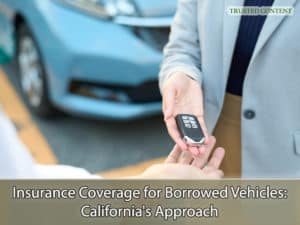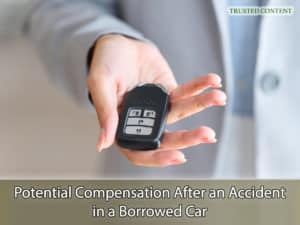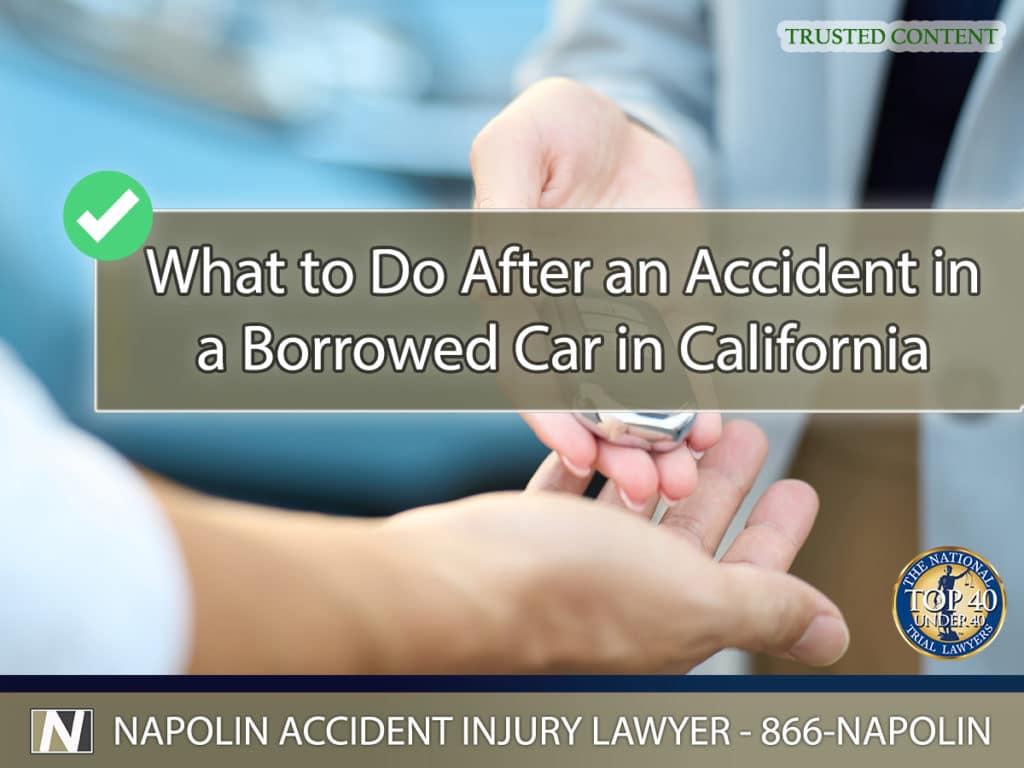In California, the legalities surrounding driving someone else's car are grounded in consent and insurance implications. When you have the car owner's permission, you're legally allowed to drive their vehicle. However, this comes with certain responsibilities, especially in the event of an accident. California law stipulates that the car's insurance policy is the primary source of coverage, not the driver's personal policy. This distinction is crucial in understanding liability and coverage in accidents involving a borrowed vehicle.

Insurance Coverage for Borrowed Vehicles- California's Approach
Insurance Coverage for Borrowed Vehicles: California's Approach
California's insurance system operates on the principle that insurance follows the car, not the driver. In an accident involving a borrowed vehicle, the car owner's insurance policy is typically the first line of defense. This includes liability coverage for bodily injury and property damage. However, if the driver is not listed on the policy and the insurance company has a clause excluding non-listed drivers, coverage may be denied. Additionally, if the accident costs exceed the policy limits, the driver's personal insurance may then come into play, subject to the terms of their policy.
Uninsured and Underinsured Coverage in California
In situations where the at-fault driver lacks sufficient insurance, California's uninsured and underinsured motorist coverage becomes relevant. This coverage, which must be offered as part of any auto insurance policy in the state, provides protection when the at-fault driver either has no insurance (uninsured) or insufficient insurance (underinsured) to cover the damages. For accidents in a borrowed car, this coverage can offer a crucial safety net, particularly if the car owner's policy limits are exceeded or if the at-fault driver is inadequately insured.
Your Own Auto Insurance: A Secondary Safety Net
Your personal auto insurance in California can serve as a secondary source of coverage in accidents involving a borrowed car. This is particularly relevant if the primary insurance (the car owner’s policy) is insufficient. Most personal auto policies in California include a provision for ‘non-owned' vehicles, which extends some level of coverage to the driver when operating a vehicle they do not own. However, this coverage is typically secondary to the vehicle owner's insurance and may have limitations based on the policy terms.

Potential Compensation After an Accident in a Borrowed Car
Potential Compensation After an Accident in a Borrowed Car
Victims of car accidents in California, including those in borrowed vehicles, are entitled to seek compensation for a range of damages. This includes medical expenses for injuries sustained, lost wages due to inability to work, and pain and suffering. Additionally, compensation for property damage, including repair or replacement of the borrowed vehicle, can be claimed. The extent of compensation depends on the specifics of the insurance policies involved and the severity of the accident.
Legal Assistance: Why It Matters in California Car Accidents
Seeking legal assistance in California for accidents involving a borrowed car is vital for navigating the complex interplay of insurance policies and state laws. A knowledgeable attorney can help in identifying all potential sources of insurance coverage, negotiating with insurance companies, and ensuring that your rights are protected. They can also assist in filing a lawsuit, if necessary, to recover adequate compensation for all damages incurred.
What to Do After an Accident in a Borrowed Car in Ontario, California
What to Do After an Accident in a Borrowed Car in Ontario, California
Dealing with the aftermath of an accident in a borrowed car in California requires a thorough understanding of legal and insurance issues. At Napolin Accident Injury Lawyer, we provide expert guidance and representation to ensure your rights are upheld. If you've been involved in such an accident, don't hesitate to reach out. Call us at (909) 962-8415 for a free consultation and benefit from our extensive experience in handling complex accident cases.

